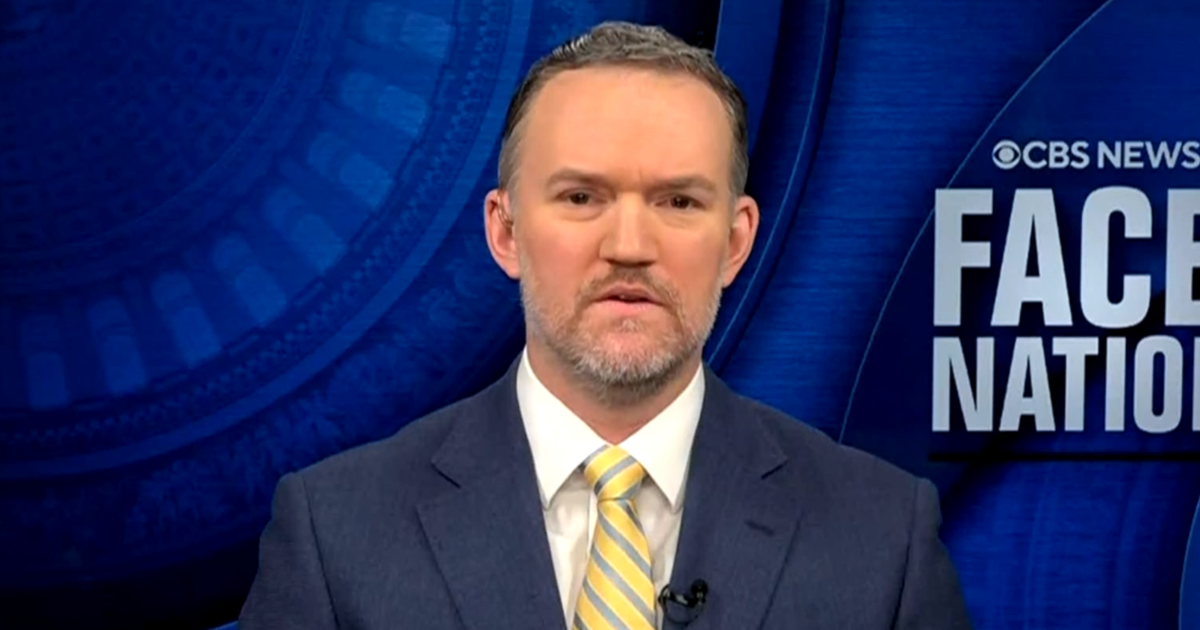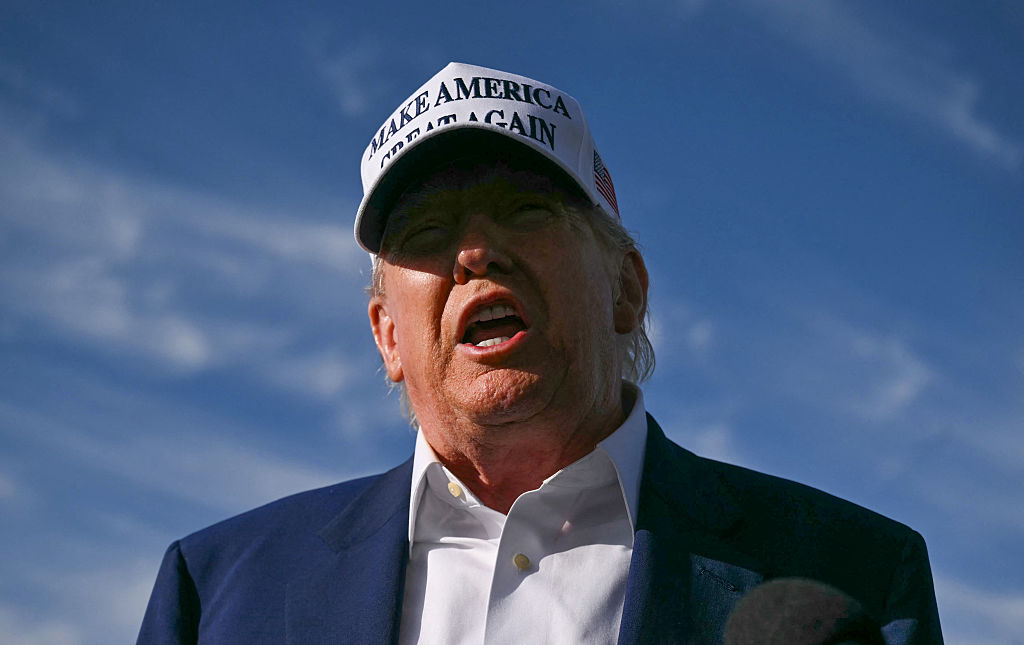Transcript: Mitch McConnell on "Face the Nation," Dec. 3, 2017
The Republican-controlled Senate passed its version of tax reform early Saturday morning with a simple majority. But Congress will still need to reconcile it with the House-passed version.
"Face the Nation" sat down on Sunday with Senate Majority Leader Mitch McConnell to discuss the Senate's passage of tax reform -- and more.
What follows is a transcript of the interview, which aired Sunday, Dec. 3, 2017, on "Face the Nation."
JOHN DICKERSON: We want to take a closer look at what the Senate passed. Their bill would repeal the Obamacare individual mandate. The corporate tax rate would be cut from 35% to 20%. It will nearly double the standard tax deduction, eliminate state and local tax deductions, but would allow an up to $10,000 exception for property taxes. But the bill would also double the estate tax exemption limit and raises the alternative minimum tax threshold.
An analysis of the bill by the nonpartisan Joint Committee on Taxation indicated that even accounting for economic growth the tax plan would add a trillion dollars to the deficit. We begin this morning with Senate Majority Leader Mitch McConnell. He joins us from Louisville. Welcome, Mr. Majority Leader. I want to start with the balance of this tax cut that passed through the Senate. The corporate tax rate is at 20%. It's been sold as a middle class tax cut, but those middle class taxes will expire.
Analysis shows that while the majority of the middle class will get a tax cut there are some whose taxes will increase. Why not, in putting this bill together, make-- make it so that you could say everybody in the middle class will get a tax cut that's permanent?
MITCH MCCONNELL: (LAUGHS) Well, it's impossible to do that. You can't craft any bill that would guarantee no one was in a special category that might get a tax increase. What I can tell you is that every segment of taxpayers, every category of taxpayers on average gets significant relief. The average family of four, $2,200 a year. You mentioned the standard deduction doubling, the child care credit increase.
Clearly most people, middle income taxpayers, an overwhelming majority of them will get tax relief. And because of the business tax changes it's much less likely that the job they currently have is going to end up in another country because we are clearly uncompetitive in the global economy with the current tax rates.
JOHN DICKERSON: But--
MITCH MCCONNELL: John, I think this coupled with the regulatory relief the administration's been providing are the reasons the economy's beginning to pick up. Consumer confidence is up. I don't want to read too much into quarterly growth rates, but we've had two quarterly growth rates in a row of 3% growth. I think this is going to get the country growing again.
JOHN DICKERSON: But on a question of the middle class, there would be a way to craft it so that the number of people who might get a tax increase would be pretty small. And there were Republican efforts to expand the earned income tax credit, to make the child tax credit more robust, to lower the rates for people at the lower end. Those were all Republican efforts that didn't get much energy whereas the energy on the corporate tax rate was always, "It's going to be 20%, and nobody's tinkering with that." So just in terms of where the emphasis was on the work, there's much more work that could have been done on the middle class and lower income question than was really done in crafting this bill.
MITCH MCCONNELL: Well, the question is whether you're getting tax relief. And of course people on the lower end don't provide a huge percentage of the revenue that we raise through taxation. But what people want is, "Am I going to get some relief myself?" Answer, overwhelmingly likely to, "and is my job likely to continue to be in the United States? And are we going to have a growing economy so my children will be able to realize the same goals and aspirations that I want them to have?"
JOHN DICKERSON: I think that--
MITCH MCCONNELL: And this is designed, this is designed to get the economy grow-- we didn't have a single year of 3% growth during all of the Obama years. We were clearly underperforming. You have to ask the question why. A combination of overregulation and a lousy tax code.
JOHN DICKERSON: I think the question was about really the winners and losers, but let's move on to the question of process. Because the Democrats of course have made a lot of complaints about process. You said on Friday night, "You complain about process when you're losing." And-- and the Senate process might seem like something that's not important to people, but you wrote a book called The Long Game in which you talk a lot about the process. You say in fact it's what's at the heart of the Senate and why it's a different institution. So this looks like a situation when you're in the minority you like the process but when you're in the majority you move on.
MITCH MCCONNELL: Not true. We followed the regular order. There were multiple hearings. The Democrats were there. Days of hearings. Days of amendments. The Democrats offered amendments in committee ad nauseam. The process on the floor, the reconciliation process, is regular order. That's how they passed Obamacare. It's -- we didn't do anything that you could call a foul on process.
JOHN DICKERSON: Well, they--
MITCH MCCONNELL: Well, they didn't -- let me just say they didn't like the fact that we repealed the unpopular individual mandate from Obamacare, but yet they didn't offer a single amendment to take it out, and they had the opportunity to do it.
JOHN DICKERSON: Well, they had 25 days of debate on Obamacare. And you said the process at the time was arrogant and that they were pushing an unpopular bill through. This bill is unpopular. Why isn't this the same thing?
MITCH MCCONNELL: Well, we'll see how unpopular it is when people start noticing they're paying less in taxes, the economy's growing, there are more jobs and opportunity. Look, we have a very different, it was pretty clear during this debate we have a very different view of what America ought to look like. Our Democratic friends apparently are quite content with slow growth and little opportunity to improve your condition. We think we need to jumpstart the economy and provide more jobs and opportunity for the American people. One of us is going to be proven wrong here over a period of time.
JOHN DICKERSON: Let me ask you about Roy Moore. We have a poll out that says Mr. Moore is up six points over his Democratic opponent Doug Jones. And in that poll it says that among Mr. Moore's supporters 56% say they were more likely to vote for him after you said he should quit the race. What do you make of that?
MITCH MCCONNELL: Well, look. The people of Alabama are going to decide a week from Tuesday who they want to send to the Senate. It's really up to them. It's been a pretty robust campaign with a lot of people weighing in. The president and I of course supported somebody different earlier in the process. But in the end the voters of Alabama will make their choice.
JOHN DICKERSON: And should that be the final word? The White House, when asked about the president's accusers, said, "The voters heard about president's accusers. They voted for him anyway, end of subject." So shouldn't that be the case with Roy Moore?
MITCH MCCONNELL: Well, look. I'm concerned about the Senate. And if -- we have two ethics investigations in the Senate going on right now. Senator Franken and Senator Menendez. And there might well be another one depending upon people who are in the Senate. And it'll be up to the people of Alabama to make this decision. And we'll swear in whoever's elected and see where we are at that particular point.
JOHN DICKERSON: In the past you've supported Ethics Committee determinations in the case of Senator Vitter that said, basically, behavior before he got to the Senate was not germane in terms of punishing him as a senator. That would seem to cover Roy Moore. In which case, what's the Senate Ethics Committee got to look into?
MITCH MCCONNELL: Yeah, I don't remember the -- I'm not on the Ethics Committee. I don't remember exactly how the Vitter case was handled. But the Ethics Committee makes those decisions about whether behavior prior to the Senate is relevant or not. They'll decide the parameters, if you will, of their jurisdiction. And that decision will be made based upon the facts of a particular case. I can imagine there probably will be a case. Whether the outcome is there, I don't know. But, look, the Ethics Committee is three-three. Neither side can take advantage of the other.
It has to be a pretty credible case to go forward. In other words, at least one member of the other party would have to decide that the case was worth pursuing. All of that'll be considered by the committee if they have a member of the Senate that they think has a case that ought to come before them.
JOHN DICKERSON: All right. Majority Leader Mitch McConnell, thanks so much for being with us.
MITCH MCCONNELL: Thank you.



